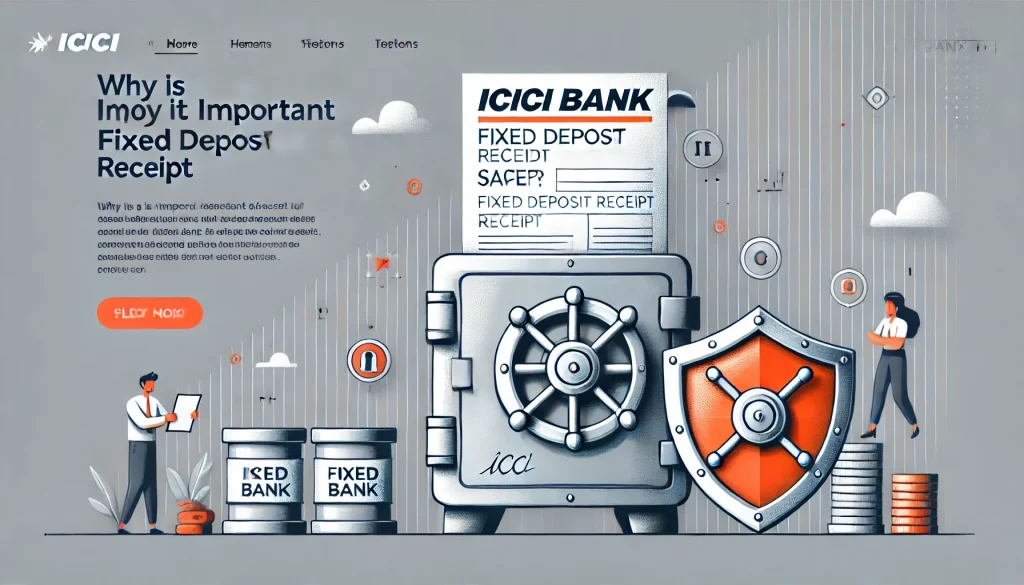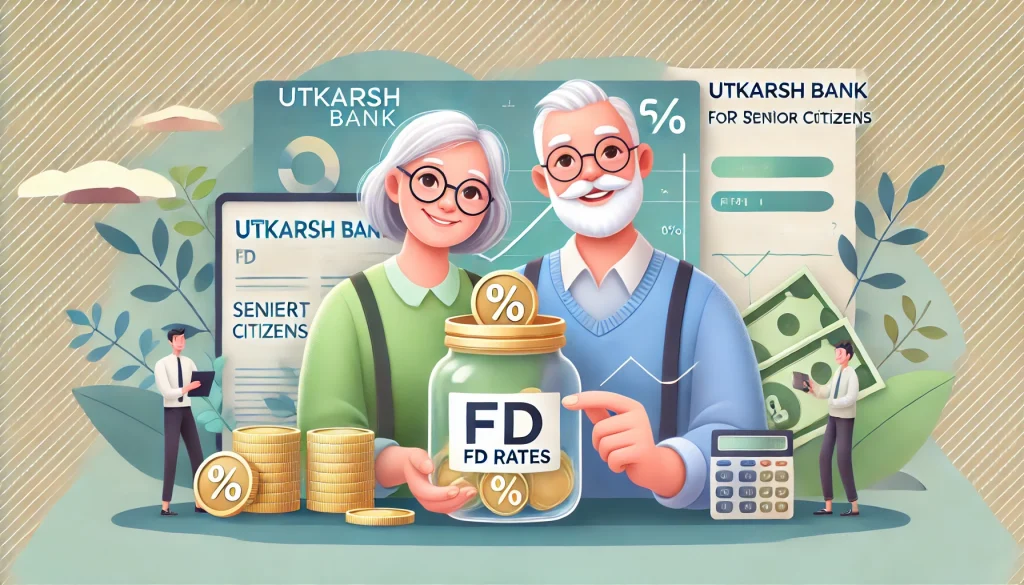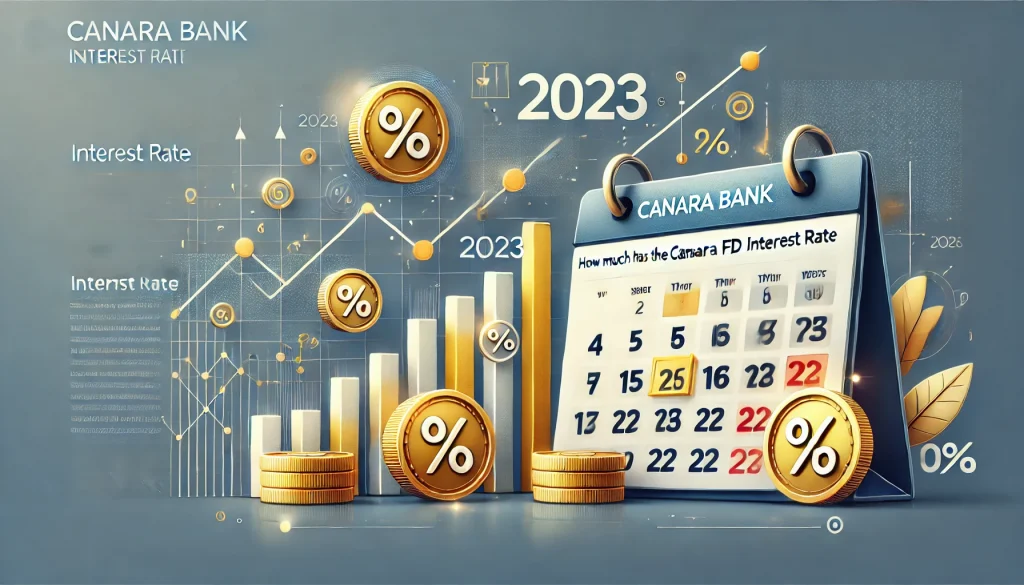
Fixed Deposit is a financial instrument offered by banks and financial institutions. It allows individuals to deposit a specific amount at a fixed interest rate for a predetermined period. Fixed Deposits provide a secure and low-risk investment avenue, making them a preferred choice for conservative investors. The principal amount and interest earned are guaranteed, offering stability and peace of mind. In this article, we will explore the various features and benefits of fixed deposits and how they can help investors.
Features of Fixed Deposit
- Minimum Deposit Amount – Banks set a minimum deposit amount for opening a fixed deposit account. The minimum requirement may vary from one bank to another. Investors can choose to deposit a higher amount to earn better interest rates.
- Fixed Tenure – Fixed deposits have a predetermined tenure chosen by the investor at the time of deposit. The tenure can range from a few days to several years. The interest rates offered may vary based on the deposit duration.
- Interest Rates – The interest rates on fixed deposits are fixed at the time of deposit and remain constant throughout the tenure. These rates may differ across banks and also depend on the deposit duration. It is advisable to compare rates offered by different banks before finalising an investment.
- Premature Withdrawal Options – In case of financial emergencies, investors can opt for premature withdrawal of their fixed deposits. However, banks may charge a penalty or reduce the interest rate applicable in such cases. Considering the terms and conditions regarding premature withdrawals before investing is essential.
- Auto-Renewal Facility – Fixed deposits often come with an auto-renewal facility, allowing investors to automatically reinvest the principal and interest upon maturity. This ensures that the funds continue to earn returns without any hassle or paperwork.
Benefits of Fixed Deposit
- Guaranteed Returns – One of the key advantages of fixed deposits is the assurance of guaranteed returns. The interest rates are fixed at the time of deposit, and the investor knows the exact amount they will receive at maturity. This predictability makes it easier to plan for future financial needs.
- Safety and Security – Fixed deposit is considered as a safe investment as they are backed by the deposit insurance scheme provided by the government. Even in the unlikely event of a bank failure, depositors are protected up to a certain amount.
- Flexible Tenure Options – Fixed deposits offer flexibility in choosing the deposit tenure. Investors can opt for short-term deposits ranging from a few months to long-term deposits extending up to several years. This allows individuals to align their investment horizon with their financial goals.
- Higher Interest Rates – Fixed deposits generally offer higher interest rates compared to savings accounts. The rates vary based on the deposit tenure and the policies of the bank or financial institution. Investors can earn more substantial returns by selecting longer tenure deposits or availing of special schemes. You can use the online FD Calculator to check how much amount you can earn during the investment time.
Tax Implications of Fixed Deposit
Fixed deposits have certain tax implications that investors should be aware of.
- TDS on Interest Income – Banks deduct TDS (Tax Deducted at Source) on the interest earned from fixed deposits as per the prevailing income tax rules. The deducted amount is remitted to the income tax department on behalf of the investor. Considering the TDS implications while calculating the actual returns from fixed deposits is important.
- Tax-Saving Fixed Deposits – As mentioned earlier, tax-saving fixed deposits offer tax benefits under Section 80C of the Income Tax Act. However, the interest earned from these deposits is taxable. Investors should evaluate the overall tax implications before investing in tax-saving fixed deposits.
- Tax Exemptions for Senior Citizens – Senior citizens may be eligible for additional tax exemptions on the interest earned from fixed deposits. The specific exemptions vary based on the prevailing tax laws and the individual’s age. Senior citizens should consult a tax professional to understand the tax benefits they can avail of.
Factors to Consider Before Investing in Fixed Deposit
Before investing in fixed deposits, it is crucial to consider the following factors:
- Financial Goals – Investors should assess their financial goals and determine if fixed deposits align with their objectives. Other investment avenues might be more suitable if the purpose is long-term growth.
- Interest Rates Offered – Different banks offer varying interest rates on fixed deposits. It is advisable to compare the rates offered by multiple banks and choose the one that provides the best returns.
- Deposit Tenure – The deposit tenure impacts the interest rates and liquidity of the funds. Investors should select a tenure that suits their financial needs and goals.
- Tax Implications – Consider the tax implications associated with fixed deposits. Evaluate the impact of TDS, tax-saving fixed deposits, and any applicable exemptions.
Tips for Maximizing Returns on Fixed Deposits
Consider the following tips to maximise returns on fixed deposits:
- Compare Interest Rates – Research and compare interest rates offered by different banks. Opt for banks offering competitive rates.
- Choose the Right Tenure – Select a deposit tenure that aligns with your financial goals. Longer tenures often offer higher interest rates.
- Opt for Cumulative Deposits – If you don’t require regular interest payouts, opt for cumulative deposits where the interest is compounded and paid at maturity. This can help enhance overall returns.
- Avoid Premature Withdrawals – Premature withdrawals may attract penalties or reduced interest rates. It is advisable only to withdraw funds after completing the deposit tenure.
Conclusion
Fixed deposits offer a secure and reliable investment option for individuals seeking stable returns. With guaranteed returns, flexible tenure options, and higher interest rates, fixed deposits provide an avenue for wealth preservation and growth. Individuals can make informed decisions and maximise their returns by understanding the types of fixed deposits, their features, tax implications, and factors to consider before investing.
FAQs
Yes, you can withdraw your fixed deposit before the maturity date. However, it may attract penalties or reduced interest rates, depending on the terms and conditions of the bank.
Yes, many banks offer loans against fixed deposits as collateral. The loan amount may vary based on the deposit and bank policies
Fixed deposits are generally considered low-risk investments as they provide guaranteed returns. However, they are subject to inflation risk, as the interest rates may not keep pace with rising prices.
Yes, you can open multiple fixed deposits in the same bank. Each deposit will have its own tenure and interest rate
The interest rates on fixed deposits are fixed at the time of deposit and remain constant throughout the tenure of the deposit
Disclaimer
This article is solely for educational purposes. Stable Money doesn't take any responsibility for the information or claims made in the blog.


